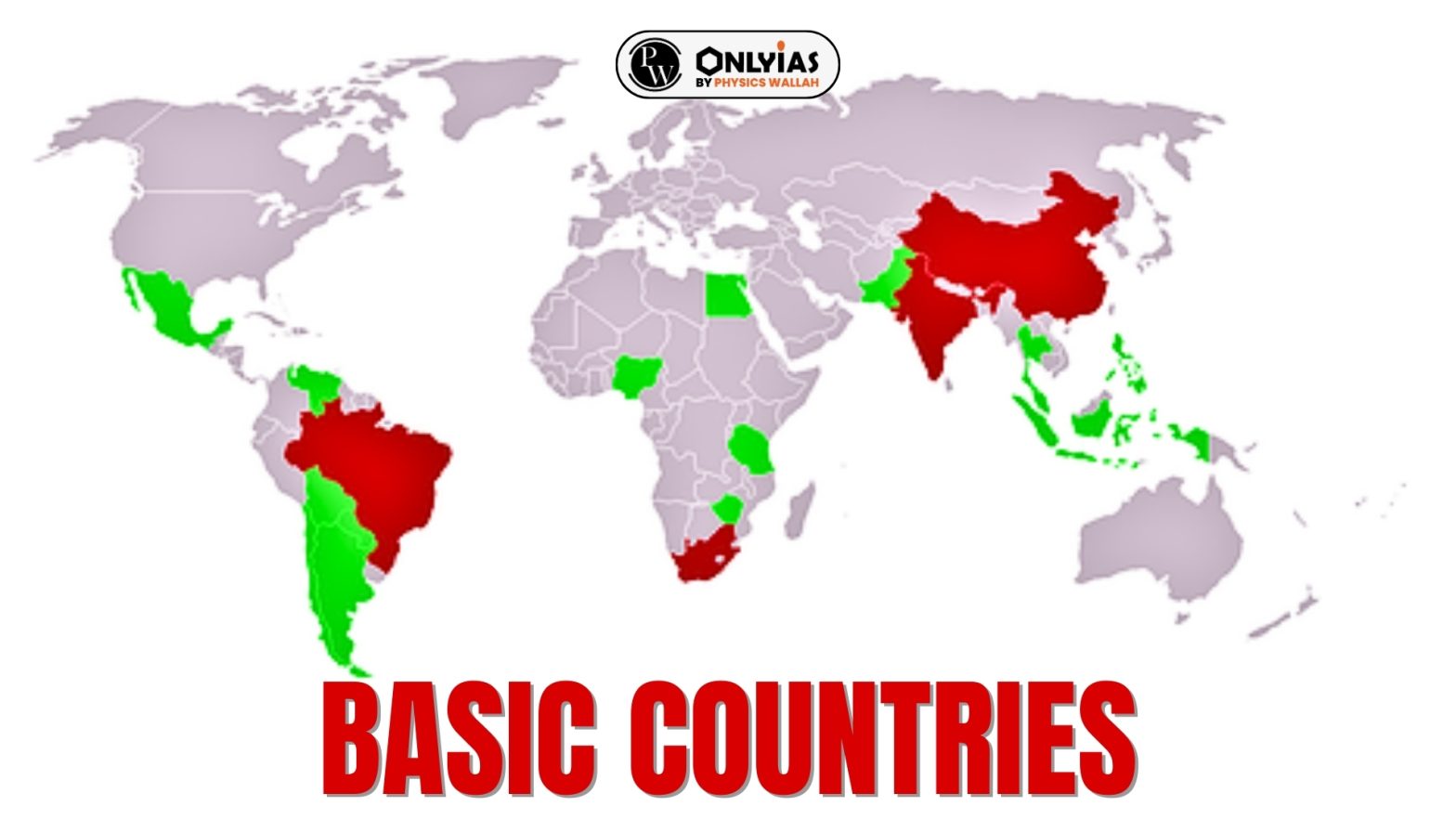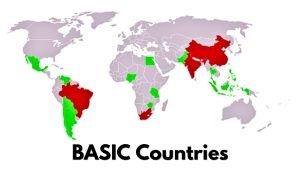BASIC Countries is a coalition of Brazil, South Africa, India, and China collaborating to combat climate change under the UNFCCC.

The BASIC Countries—Brazil, South Africa, India, and China—represent a coalition of emerging economies that play a crucial role in international climate negotiations. Established on 28th November 2009, the group was formed to work collectively on climate change issues while addressing the developmental needs of its member nations. Here we have covered the BASIC Countries‘ significance, their role in global climate discussions, and their key contributions to agreements like the Copenhagen Accord.
The term BASIC Countries refers to a coalition of four large developing nations. The BASIC full form is Brazil, South Africa, India, and China. These countries collaborate to represent the interests of developing economies in global climate discussions. The group was formally established during the climate talks leading up to the 2009 Copenhagen Accord.

The BASIC Countries are known for their significant role in advocating for climate justice and equitable responsibility, emphasizing the developmental needs of less industrialized nations. The members of the BASIC coalition include:
| Country | Region | Key Contributions |
| Brazil | South America | Focuses on protecting the Amazon rainforest and advocating for sustainable development. |
| South Africa | Africa | Plays a leadership role in African climate negotiations and renewable energy initiatives. |
| India | South Asia | Champions the rights of developing nations and focuses on renewable energy and sustainable development. |
| China | East Asia | Largest global emitter but also a leader in renewable energy investments. |
The Copenhagen Accord (2009) marked a pivotal moment in climate negotiations. The BASIC countries played a central role in shaping the accord, emphasizing the principle of “common but differentiated responsibilities” (CBDR), which acknowledges that developed nations have historically contributed more to climate change and should bear greater responsibility for mitigation.
Key Contributions by BASIC Countries to the Copenhagen Accord:
The BASIC group holds significant importance in global climate discussions due to the following factors:
While the BASIC coalition is a powerful bloc, its member nations face unique challenges:
For UPSC aspirants, understanding the BASIC countries UPSC is essential, particularly under topics related to international relations, environment, and climate change. Focus areas include:
Ready to boost your UPSC 2025 preparation? Join PW’s UPSC online courses today!
UPSC Exam 2025 Related Articles
UPSC Prelims 2025 Exam
UPSC Notification 2025
UPSC Preparation 2025
UPSC Eligibility 2025
UPSC Exam Pattern
UPSC Syllabus
The BASIC Countries—Brazil, South Africa, India, and China—are a coalition of developing nations focused on addressing climate change and advocating for the interests of emerging economies in global climate negotiations.
BASIC countries were formed in 2009 to act as a unified voice for developing nations during climate negotiations and to emphasize the principle of "common but differentiated responsibilities."
BASIC countries helped shape the Copenhagen Accord by advocating for climate finance, equitable responsibilities, and voluntary emission reduction targets.
They represent a significant portion of global emissions and GDP, making their participation essential for achieving international climate goals.
Challenges include balancing development with emission reductions, international pressure from developed nations, and differing priorities among member countries.
<div class="new-fform">
</div>